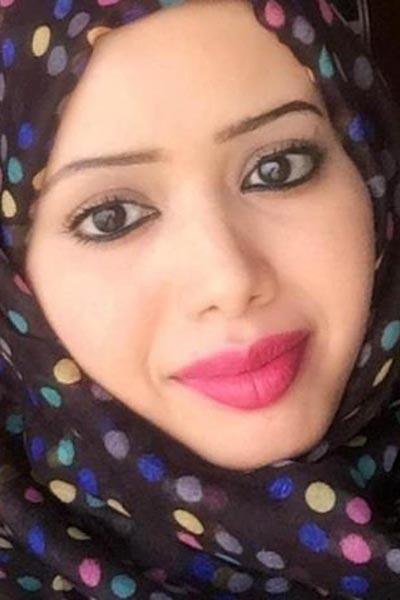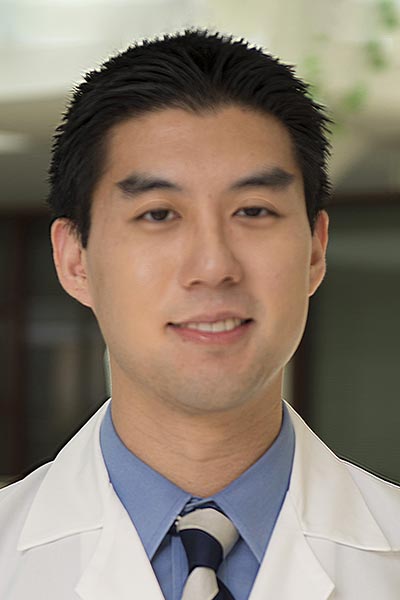Research from 14 NextGen Stars featured throughout the program
//
Estimated Read Time:
The AACR NextGen Stars program was created to offer enhanced visibility to early-career scientists while supporting their professional development and advancement. The research can be in any area across a variety of subspecialties.
This year’s 14 AACR NextGen Stars will present their research during several major symposia and sessions at the Annual Meeting. The presentations are an important part of the honor, offering the recipients a powerful professional boost at an important time in their careers.

“The AACR NextGen Star honor is an excellent opportunity for me to expand on my networking and to build new national and international collaborations with distinguished scholars and experts in the field of cancer,” said Isra A. Elhussin, MBBS, MSC, Tuskegee University, who conducted a multi-omics comparison of European, African American, and Native American men with prostate cancer. She will present her research during the session The Next Generation of Targets for Prostate Cancer, which will be held from 10:15 – 11:45 a.m. CDT on Monday, April 11.
“The AACR NextGen Star honor, with its broad range of research and clinical-translational topics, as well as its commitment to cutting-edge methods, will provide the best opportunity for me to further enrich my education and training,” she said.
Another 2022 AACR NextGen Star, William L. Hwang, MD, PhD, said he has already benefited from the program. He will present his research during the special session Nerves, Cancer, and Immunity, which will be held from 10:15 – 11:45 a.m. CDT Monday. Hwang recently reached out to the session chair, Humsa Venkatesh, PhD, Harvard Medical School, Brigham and Women’s Hospital, who will also be presenting research during the session.

“I have gotten interested in the role of nerves in pancreatic cancer over the past couple of years,” Hwang said. “It started with a patient of mine who had an intractable pain that I had never seen before in a cancer patient. No amount of narcotics would touch the pain.”
The pathology report noted that the cancer cells had invaded the patient’s nerves, he explained. The pathologist called it ‘perineural invasion’ and told Hwang that she sees it in most patients with pancreatic tumors, but it’s unclear why.
“I became fascinated with this dialogue between cancer cells and nerves and decided to study it using our high-resolution tools,” Hwang said. “One thing that AACR NextGen Stars has already done is it accelerated me reaching out to Humsa. She is a pioneer in cancer neuroscience. We had a great conversation and are talking about potential collaborations.”
The other 12 AACR NextGen Stars will present their research during the following sessions:

Mustapha Abubakar, MD, PhD, research fellow, Division of Cancer Epidemiology and Genetics at the National Cancer Institute, will present “Double-edged ‘soil’: Stromal Microenvironment in Breast Cancer” during the major symposium Metabolic and Nutritional Regulation of Cancer and Immunity, from 10:15 – 11:45 a.m. CDT on Tuesday, April 12.
[gap height=”10″]

Ana Luisa Correia, PhD, principal investigator, Cancer Dormancy and Immunity Lab, Champalimaud Foundation, Lisbon, Portugal, will present “Revisiting NK Cell Immunity to Prevent Metastasis” during the major symposium Evolutionary, Metabolic, and Microenvironmental Control of Cancer Cell Dormancy, from 1 – 2:30 p.m. CDT on Sunday, April 10.
[gap height=”10″]

Ekrem Emrah Er, PhD, assistant professor, Department of Physiology and Biophysics, University of Illinois at Chicago, will present “Elevated Cellular Stiffness Sensitizes Metastatic Cells to Destruction by Mechanosurveillance: The Mechanical Mode of Immune Surveillance” during the major symposium Extracellular Matrix Remodeling in Cancer, from 12:30 – 2 p.m. CDT on Tuesday, April 12.
[gap height=”10″]

Ariella B. Hanker, PhD, assistant professor, Simmons Comprehensive Cancer Center, University of Texas Southwestern Medical Center, will present “It Takes Two: Cooperating Oncogenic Mutations in the HER2/HER3 Pathway” during the session Triple Negative Breast Cancer: Molecular Insights and Treatment Advances, from 12:30 – 2 p.m. CDT on Monday, April 11.
[gap height=”10″]

Daniel Herranz, PharmD, PhD, assistant professor of pharmacology, Rutgers Cancer Institute, will present “Identification of SIRT1 as a Novel Therapeutic Target in T-ALL” during the major symposium Epigenetic Alterations as Cancer Therapeutic Targets, from 12:30 – 2 p.m. CDT on Monday, April 11.
[gap height=”10″]

Sarah J. Hill, MD, PhD, assistant professor, Medical Oncology/Molecular and Cellular Oncology, Dana-Farber Cancer Institute, will present “Dissecting Mechanisms of NK Cell Dysfunction and Re-engagement in High Grade Serous Ovarian Cancer” during the session Advances in Ovarian Cancer Detection and Treatment, from 12:30 – 2 p.m. CDT on Monday, April 11.
[gap height=”10″]

Anand G. Patel, MD, PhD, instructor, Department of Oncology, St. Jude Children’s Research Hospital, will present “The Myogenesis Program Drives Clonal Selection and Drug Resistance in Pediatric Rhabdomyosarcoma” during the session Models for Rare Cancers, from 10:15 – 11:45 a.m. CDT on Tuesday, April 12.
[gap height=”10″]

Arja Ray, PhD, postdoctoral fellow, Department of Pathology, University of California San Francisco, will present “Next-generation Macrophage and T Cell Activation Reporters to Define Functional Immune States in Solid Tumors” during the major symposium Myeloid Cell Control of Therapeutic Antitumor Immunity, from 10:15 – 11:45 a.m. CDT on Tuesday, April 12.
[gap height=”10″]

Marcus Ruscetti, PhD, assistant professor, Department of Molecular Cell and Cancer Biology, University of Massachusetts Chan Medical School, will present “Modulating Cellular Senescence to Reinstate Natural Killer Cell Immunity for Pancreatic Cancer Immunotherapy” during the major symposium Aging and the Tumor Microenvironment’s Impact on Minimal Residual Disease and Cancer Recurrence, from 10:15 – 11:45 a.m. CDT on Wednesday, April 13.
[gap height=”10″]

Ayesha Shafi, PhD, assistant professor, Center for Prostate Disease Research, Uniformed Services University of the Health Sciences/The Henry M. Jackson Foundation for the Advancement of Military Medicine, will present “The Circadian Cryptochrome, CRY1, is a Pro-tumorigenic Factor that Rhythmically Modulates DNA Repair” during the Presidential Select Symposium: Aging, Stress, and Cancer, from 10:15 – 11:45 a.m. CDT on Monday, April 11.
[gap height=”10″]

Katherine Y. Tossas, PhD, MS, assistant professor, Department of Health Behavior & Policy, Massey Cancer Center, Virginia Commonwealth University, will present “The Vaginal Microbiome May Operate Differently by Race to Precipitate the Risk of Pre-cervical Cancer” during the session Where You Live Matters: From Biological to Social Determinants of Cancer Outcomes, from 12:30 – 2 p.m. CDT on Tuesday, April 12.
[gap height=”10″]

Derek A. Wainwright, PhD, assistant professor, Departments of Neurological Surgery, Medicine, and Immunology, Northwestern University Feinberg School of Medicine, will present “IDO: Going Beyond Enzyme Activity to Eradicate Glioblastoma” during the session Advances in Glioblastoma Cancer Research and Cancer Care, from 12:30 – 2 p.m. CDT on Monday, April 11.
[gap height=”10″]
[sub-post-content]


